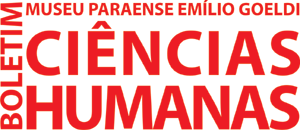Resumo em Português:
A Geografia sempre teve como preocupação estudar a relação entre os grupos sociais e o meio no qual eles interagem para a retirada de recursos naturais para a sua sobrevivência. Esta relação sempre foi permeada por determinações de poder na organização das formas de apropriação dos recursos, derivando disso territorialidades diversas. Essas territorialidades demonstram a variedade de atores que estão envolvidos num determinado território e que aí materializam ações distintas para a apropriação do espaço e a utilização dos recursos naturais. No caso da pesca isso não é diferente, pois se verifica que a prática pesqueira é vivenciada por uma diversidade de atores, como pescadores, associações de pesca, órgãos de fiscalização etc., e cada um deles se relaciona, especificamente, com os espaços de pesca, materializando ações específicas para a delimitação do território e, desta forma, adotando territorialidades e percepções diversificadas e muitas vezes conflitantes. Este estudo faz parte de uma pesquisa que objetiva, por meio de pesquisa de campo direta, realizar uma análise do modo de vida dos pescadores da Colônia de Pescadores Z 62, sediada no município de Breves, estado do Pará, e de como eles percebem seu território de atuação, visto que interagem com outros atores que utilizam o mesmo território de outras formas que não a pesca.
Resumo em Inglês:
Geography was always concerned with the study of the relationship between social groups and the environment in which they interact as natural resources for their survival. This relationship was always intertwined by power determinations in the organization of forms of appropriation of natural resources, deriving different types of territorial assets. These territorial assets demonstrate a variety of actors, involved in a certain territory and materializing different actions for the appropriation of space and use of the natural resources. In the case of fishing this is not different, since we verified that fishing practice is witnessed by a variety of actors, fishermen, fishing community, fishing association, fishing zone and regulatory agencies. Each of these actors relate in specific ways to the fishing spaces and material specific actions to define the territory, adopting territorial assets and a diversity of perceptions which sometimes conflict to each other. This study is part of a research which, through direct field research, aims at accomplishing an analysis of the way of life of the fishermen of the Colony of Fishermen Z 62, headquartered in the municipal district of Breves, state of Pará, and of how they acknowledge their territory, in the way they interact with other actors which use the same territory in other ways unrelated to fishing.
